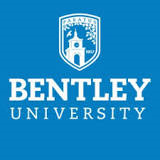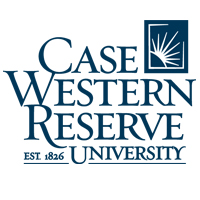What do they do?
Analyze credit data and financial statements of individuals or firms to determine the degree of risk involved in extending credit or lending money. Prepare reports with credit information for use in decisionmaking.
Also known as:
Credit Administrator, Credit Analyst, Credit and Collections Analyst, Credit Officer, Credit Representative, Credit Risk Analyst, Municipal Fixed Income Analyst
-
-5.9%
Change
Ranks #49 in job growth rate210Job Openings
Ranks #8 in net job growth
-
Bentley University
Waltham, MA
-
Case Western Reserve University
Cleveland, OH
-
University of Scranton
Scranton, PA
-
-
CUNY Bernard M Baruch College
New York, NY
Looking for colleges that offer a specific major? Use the College Match Tool to find your best-matched schools and discover your estimated Net Price!
- Doctorate or Professional Degree (2%)
- Master's degree (15%)
- Bachelor's degree (50%)
- Associate's degree (9%)
- Some college, no degree (16%)
- High school diploma equivalent (8%)
- Less than high school diploma (<1%)
People in this career often have these skills:
- Critical Thinking - Using logic and reasoning to identify the strengths and weaknesses of alternative solutions, conclusions, or approaches to problems.
- Reading Comprehension - Understanding written sentences and paragraphs in work-related documents.
- Speaking - Talking to others to convey information effectively.
- Active Learning - Understanding the implications of new information for both current and future problem-solving and decision-making.
- Active Listening - Giving full attention to what other people are saying, taking time to understand the points being made, asking questions as appropriate, and not interrupting at inappropriate times.
- Mathematics - Using mathematics to solve problems.
People in this career often know a lot about:
- Economics and Accounting - Knowledge of economic and accounting principles and practices, the financial markets, banking, and the analysis and reporting of financial data.
- Mathematics - Knowledge of arithmetic, algebra, geometry, calculus, statistics, and their applications.
- English Language - Knowledge of the structure and content of the English language including the meaning and spelling of words, rules of composition, and grammar.
People in this career often have talent in:
- Oral Expression - The ability to communicate information and ideas in speaking so others will understand.
- Oral Comprehension - The ability to listen to and understand information and ideas presented through spoken words and sentences.
- Written Comprehension - The ability to read and understand information and ideas presented in writing.
- Inductive Reasoning - The ability to combine pieces of information to form general rules or conclusions (includes finding a relationship among seemingly unrelated events).
- Problem Sensitivity - The ability to tell when something is wrong or is likely to go wrong. It does not involve solving the problem, only recognizing that there is a problem.
- Deductive Reasoning - The ability to apply general rules to specific problems to produce answers that make sense.
- Mathematical Reasoning - The ability to choose the right mathematical methods or formulas to solve a problem.
- Number Facility - The ability to add, subtract, multiply, or divide quickly and correctly.
- Information Ordering - The ability to arrange things or actions in a certain order or pattern according to a specific rule or set of rules (e.g., patterns of numbers, letters, words, pictures, mathematical operations).
- Near Vision - The ability to see details at close range (within a few feet of the observer).
- Written Expression - The ability to communicate information and ideas in writing so others will understand.
People in this career often do these activities:
- Assess risks to business operations.
- Analyze business or financial data.
- Prepare contracts or other transaction documents.
- Calculate data to inform organizational operations.
- Prepare financial documents, reports, or budgets.
- Analyze market conditions or trends.
- Collect payments for goods or services.
- Assess financial status of clients.
- Advise others on financial matters.
- Examine financial records.
- Confer with others about financial matters.
- Correspond with customers to answer questions or resolve complaints.
This page includes data from:

 Occupation statistics: USDOL U.S. Bureau of Labor Statistics Occupational Employment Statistics
Occupation statistics: USDOL U.S. Bureau of Labor Statistics Occupational Employment Statistics
 Videos: CareerOneStop, USDOL/ETA and the Minnesota Department of Employment & Economic Development
Videos: CareerOneStop, USDOL/ETA and the Minnesota Department of Employment & Economic Development









